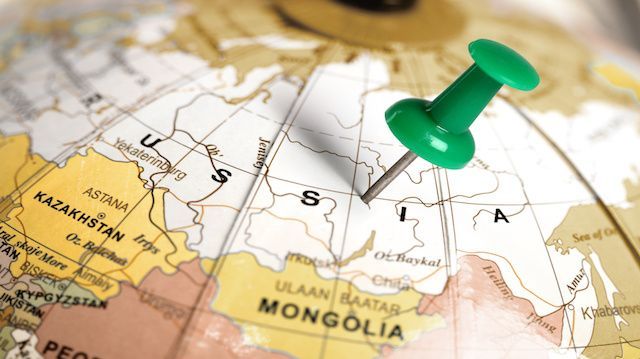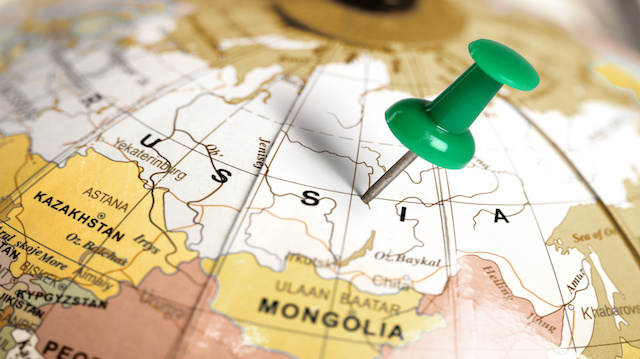
This fall, the Russian government issued a ban on all genetically modified organisms (GMOs), on both imports and domestically grown food. Since 2012, Russia has been moving toward a GMO-free marketplace, and after just a few years of research, Russia is now the latest in an ever-expanding list of countries that has rejected the use of GMOs.
This September, Russia’s Deputy Prime Minister Arkady Dvorkovich announced a ban on GMOs, stating, “As far as genetically modified organisms are concerned, we have made [the] decision not to use any GMO in food productions.” As Reuters reports, Deputy PM Dvorkovich emphasized the difference between the decision to ban GMO foods and the development of medicine and science, which the Russian government sees as two different practices.
“This is not a simple issue,” Dvorkovich said. “We must do very thorough work on division of these spheres and form a legal base on this foundation.”
Russia has been a hard sell for companies like Monsanto for a while. In 2012, the government banned imports from Monsanto from crossing its borders. Since February 2014, when Russian PM Dmitry Medvedev called for the establishment of a national research organization to investigate genetically modified organisms, Russian officials have been taking a hard look at GMOs. Although he warned against the perception that GMOs are an “absolute evil,” Medvedev was sure to state that the government didn’t support their use in the production of food.
“If the Americans like to eat GMO products, let them eat it then. We don’t need to do that; we have enough space and opportunities to produce organic food,” Medvedev said.
All Cold War hangovers and subtle hostility against Americans aside, Medvedev makes a good point that Russia has the resources to grow its own food, and that’s a good thing. Other countries have also made the move to ban the use of GMOs. Scotland, Latvia, Germany and Greece have chosen to “opt out” of growing GMO products, and this September, France followed their lead.
While France is focused on eliminating nine GMO maize strains, Russia has been able to decrease the percentage of GMO foods within its borders from 12 percent to 0.1 percent in the past 10 years. According to Reuters, only 57 food products in the entire country contain GMOs. Will these decisions put pressure on the U.S. to do the same?
 We can’t say for sure, but there are a couple of things that we can learn from Russia’s ban on GMOs. First, that it can be done. In the U.S., we tend to see corporations as invincible and impervious to the opinions of the “little people.” Russia’s ban proves that voices advocating a healthier lifestyle can prevail. Granted, there’s a lot of animosity between Russia and the U.S., so Russian officials may not have needed as much convincing when it comes to Monsanto’s policies, but no matter. They’ve almost eliminated GMOs from the entire country, which is a considerable feat, considering Russia’s size.
We can’t say for sure, but there are a couple of things that we can learn from Russia’s ban on GMOs. First, that it can be done. In the U.S., we tend to see corporations as invincible and impervious to the opinions of the “little people.” Russia’s ban proves that voices advocating a healthier lifestyle can prevail. Granted, there’s a lot of animosity between Russia and the U.S., so Russian officials may not have needed as much convincing when it comes to Monsanto’s policies, but no matter. They’ve almost eliminated GMOs from the entire country, which is a considerable feat, considering Russia’s size.
Second, we see that the GMO debate isn’t going away. Those of us who advocate for GMO labeling have yet another country to point to as an example of what living without GMOs can be like. The fact that another country — and a large one, in Russia’s case — can subsist on non-GMO foods, means that we can too.
It will be interesting to watch whether the trend of nations moving away from GMOs increases. What will the U.S. do about it? Perhaps we’ll continue to cave to the likes of Monsanto, or maybe, just maybe, we’ll stand up to organizations that insist GMOs are completely safe.
Do you think Russia’s move to a non-GMO food industry is a wise decision?
—Megan Winkler
Megan Winkler is an author, historian, Neurosculpting® meditation coach, certified nutritional consultant and DIY diva. When she’s not writing or teaching a class, Megan can be found in the water, on a yoga mat, learning a new instrument or singing karaoke. Her passion for a healthy mind-body-spirit relationship motivates her to explore all the natural world has to offer.
Sources:
http://www.cnbc.com/2015/09/23/govt-decides-to-ban-gmo-food-production-in-russia-deputy-pm.html
http://ecowatch.com/2015/09/18/france-russia-ban-gmos

